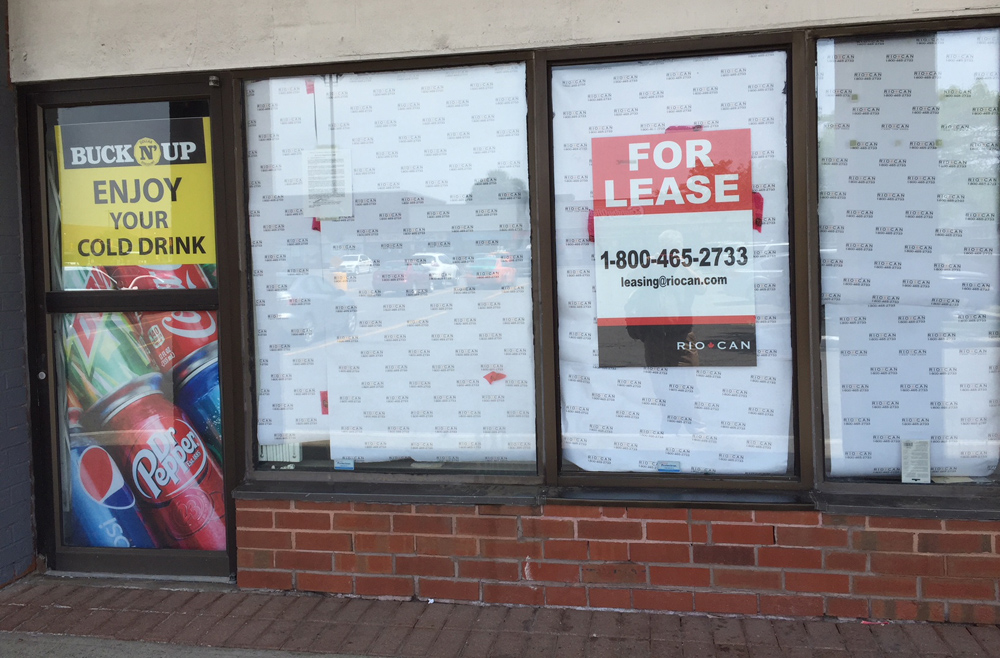During last year’s Ontario election, now-Premier Doug Ford was firm about one detail of the Liberal plan for government-run cannabis stores.

One specific store planned for a western Scarborough strip mall about a 400-metre walk from the local public school was far too close.
In early May 2018, during the provincial election campaign, he brought it up in a televised debate.
After he was elected premier, before details of the new PC government’s plan to sell legal weed was announced, he hammered the point again.
“My priority is to make sure that we protect our children. We don’t make the mistakes of the previous Liberal government by putting a pot store right beside a school, which is absolutely ridiculous, and it won’t happen under our administration,” he said.
WATCH: ‘We must protect the children’ — Doug Ford on location of cannabis sales

In due course, however, the province was forced to say what the minimum distance between a school and a cannabis store would be — 150 metres — which meant that the mall location is just as legal a place to put a cannabis store as anywhere else.
On Wednesday, the logic came full circle, as one of 42 winners of a lottery for cannabis-store operators won with a proposed location in exactly the same place that Ford had sternly denounced.
“It’s not within 150 metres of a school, right? It doesn’t technically violate any of the rules,” says Ottawa-based cannabis lawyer Trina Fraser. “But yes, Doug Ford did make those public comments.”

Get breaking National news
When Global News visited the site last year, contractors were renovating it for use as a cannabis store. Under the previous Ontario government’s plan, it would have been one of the first of a network of government-owned cannabis stores to open.
There is a period for public objections, but Fraser says they’re unlikely to be upheld.
“I haven’t seen a situation yet where they would give any kind of credence to, ‘Well, maybe you’re not 150 metres from a school, but you’re 300 metres from a school or you’re next door to a Kumon learning centre.’ That doesn’t seem to have fazed the regulator,” she explains.
Unlike the first lottery, applicants in the latest draw had to show that they had secured retail space that could be used as a store if they were selected and that they had enough capital to open it.
The winners now have until Aug. 28 to complete an application to open a store that will be vetted by the AGCO.
Update:
“Unlike the prior government’s public retail model, our private retail system will keep cannabis out of the hands of kids by imposing serious consequences on any store that sells cannabis to minors,” provincial spokesperson Jenessa Crognali wrote in an e-mail. “Our government has a zero tolerance policy for private store operators. If a store sells to kids, it will lose its licence.”
“Having introduced strict consequences for operators under the private retail model, the government has determined that stores should be at least 150 metres away from a school.”
(The PC government made some changes to Ontario’s cannabis laws after they came to power, but penalties for sale to underaged people remained unchanged: before, after.)
WATCH: Marijuana proximity — The farther away from Ontario schools, the less space for stores

Another Toronto location is one city officials struggled to close
A surprising addition to the list was 104 Harbord St. in Toronto, one of the grey-market locations that frustrated city officials, who tried over and over to close it, eventually resorting to piling giant concrete blocks in front of the entrance.
“That’s an interesting one,” Fraser says.
“One of the questions that you’re asked in the application process is: ‘Have these premises ever been used as a dispensary?’ They’re going to have to answer yes. I suspect that’s going to lead to a super high level of due diligence to make sure that whoever the tenant is, the winner is, has no affiliation or relationship whatsoever with the proprietor of the dispensary.”
The applicant, a federal numbered company, can expect intense scrutiny, she says.
“They’re doing very rigorous due diligence on everybody, period. They really are drilling down to the ultimate beneficial owners,” Fraser says.
“Not just the ultimate beneficial owners, but any kind of third party that you have any kind of contractual relationship with. They will be definitely probing any affiliation that may disqualify that winner.”
WATCH: (July 18) City of Toronto taking extreme measures to close illegal dispensaries

In Innisfil, three stores approved in the same retail strip
In Innisfil, south of Barrie, three proposed locations are all in the same retail strip just east of Highway 400.
“It happens by virtue of an intentionally random draw,” Fraser says. “This is, of course, the risk, that you end up with unintended clustering.”
The regulator may allow the lottery winners to move to different locations, Fraser says.
“It wouldn’t be in the regulator’s interest to have three stores located that closely together. It just doesn’t make any sense. They did build a bit of flexibility into the rules, an extenuating circumstances exception so you can move your store to a different location.”
However, it’s not at all clear who would have to move and who wouldn’t.
“Will they tell these people where they need to go to fill gaps in the region, or will they give them the discretion to put it wherever else they want? I don’t know. We’ll have to see.
“If all three of them say: ‘I don’t want to move,’ then what do you do? How do they decide who has to move and who doesn’t?”
Oshawa address is on the list twice
A proposed store location at 20 Simcoe St. in central Oshawa appears on the list twice.
— With files from the Canadian Press






Comments
Want to discuss? Please read our Commenting Policy first.